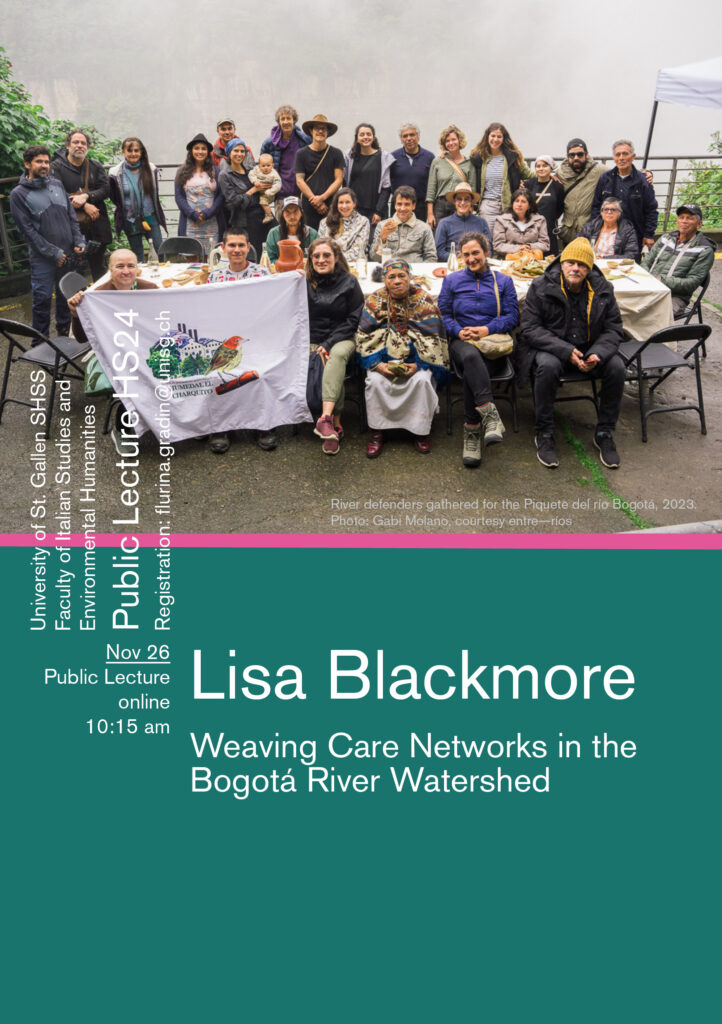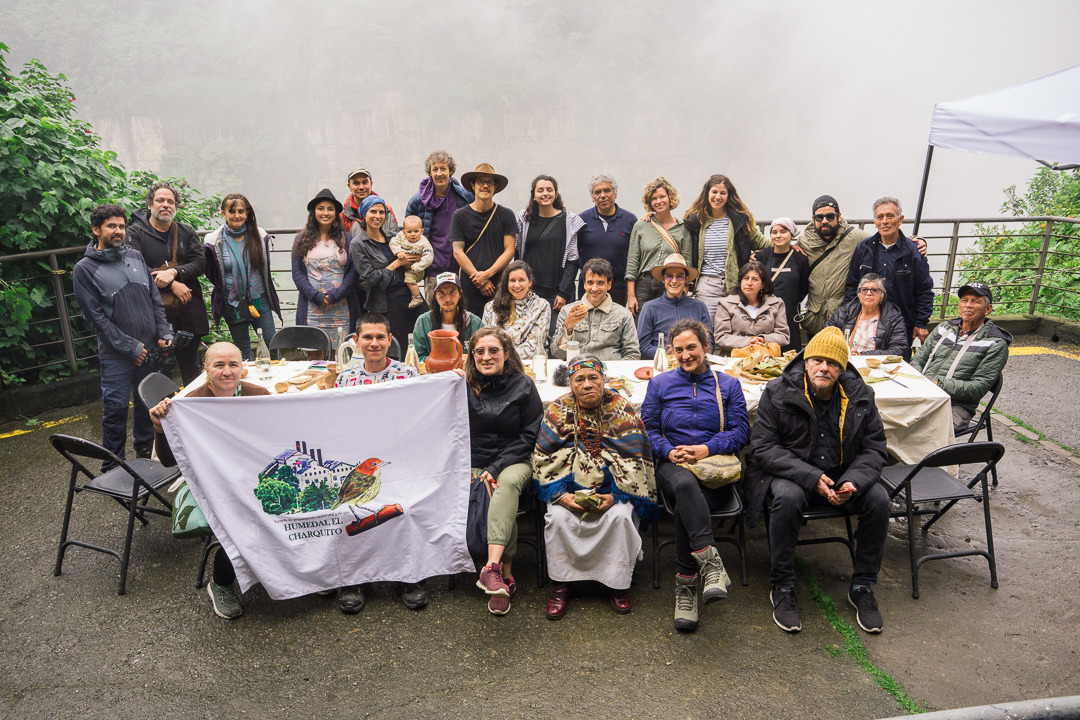
Crouching on the banks of the Bogotá River, after its serpentine path through Colombia’s capital city’s urban sprawl, the smell is overpowering. Islands of white foam sail by on a stream of black water, which navigates car tires, clothes and plastic containers, tangled layers of waste sedimented over time, making the riverbanks an archive of modern life. Water is never just water, but liquid ecologies that connect turbulent histories of “capital flows, philosophical currents, aesthetic traditions and residual traumas that connect distinct spaces, times and bodies” (Blackmore & Gómez).
In watersheds, collective life is expressed in the unfolding negotiation of “metabolic-ecological processes” (Swyngedouw) that produce affect ecosystem integrity and public health. The transformation of rivers into infrastructures for agriculture, industry and urbanization engenders forms of hydrosocial metabolism where bodies, lives and world-making forces interpermeate in sometimes nourishing but also potentially unjust and toxic ways. Amid intense anthropic transformation, the fluctuating health and contamination of bodies of water are material expressions of the cultural, socioeconomic, and political forces conditioning the reproduction of life, a phenomenon that is heightened in contaminated environments where these forces can diminish the well-being of human and non-human bodies of water.
In this talk, I address these questions through the Bogotá River, tracing the forces that have transformed the river over the past five hundred years, discussing the impact of ecological imperialism on the Indigenous Mhuysca’s amphibious agriculture and of modern urbanization and industrialization. I will present our curatorial work through entre—ríos (https://entre-rios.net/rio-bogota/), where since 2023 we have sought to weave a network of river caretakers and disseminate their work to wider audiences. As a curatorial response to this protracted ecological crisis, I consider how culinary gatherings and art-science workshops can support the cultivation of water cultures that foster healthier metabolic relations.
Online talk for Unruly Natures, Universität St Gallen, in the course Rethinking society and culture in the age of the Anthropocene, taught by Prof. Federico Luisetti.
More information here
